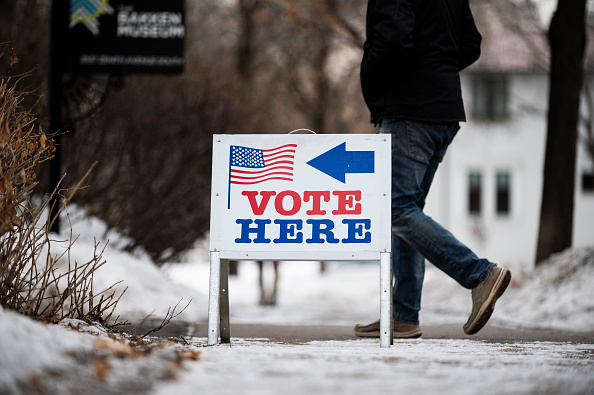As Dominion aims to hold Fox News accountable for the lies the network helped spread about the voting machine company and a stolen 2020 election, lawmakers in the Minnesota state legislature are considering legislation that would tackle the issue of election misinformation head-on.
Sponsors of the legislation say the widespread conspiracy theories about the 2020 election aren’t what prompted the introduction of two new election bills, but Minnesota, like many states, wasn’t untouched by the Big Lie and the spread of false information about elections.
In 2020, for example, Minnesota Attorney General Keith Ellison handled reports that residents were receiving “disinformation robocalls” attempting to suppress votes. And local election officials across the state received such heightened harassment from voters following the 2020 election that some considered early retirement.
To tackle these issues and the broader effects of the Big Lie on election administration in the state, lawmakers introduced two new bills in the statehouse earlier this year. The Democracy for the People Act (HF 3) hopes to reinforce voting rights in the state, as well as criminalize election misinformation, and the Election Worker Protection Act (HF 635) seeks to ban intimidating election officials and interfering with their work.
“We need to make it really clear about what’s impermissible,” Democratic Rep. Emma Greenman, who sponsored both bills, told TPM. “We need to make it really clear that people have the tools to stop this behavior and punish it, if it comes to that.”
The Democracy for the People Act
HF 3 is an expansive proposal: The bill would allow 16- and 17-year-olds to pre-register to vote; establish automatic voter registration; restore suffrage for formerly incarcerated Minnesotans who are currently on probation or parole; create a public campaign funding program called “Democracy Dollars”; require sample ballots and voting instructions to be written in multiple languages; and permit voters to opt-in to a permanent absentee voter list.
But it also includes a provision that would allow the state to charge anyone who knowingly spreads misinformation to prevent people from voting with a gross misdemeanor.
Greenman told TPM that disinformation campaigns in the state—robocalls giving voters the wrong date for Election Day or fliers saying that felons can’t vote, for example—long predated the Big Lie, but 2020 helped illustrate that the threat in Minnesota and nationally has gotten more sophisticated.
“What we’ve seen in the past three years is the real supercharging of social media,” she said, “to rapidly spread disinformation and misinformation. It’s become harder in that environment to track and stop it.”
HF 3 would make charges over election disinfo punishable by up to a year in jail and a $3,000 fine.
The Election Worker Protection Act
HF 635 was written to tackle an issue that only grew post-2020: threats against election workers.
The Gopher State saw a “noticeable uptick” in threats, harassment and intimidating behavior towards election workers, Simon, the secretary of state, said at a recent House hearing.
“What the Big Lie did was, it was looking for a villain,” Greenman said. “And when you’re lying about voter fraud, the villain oftentimes becomes the local men and women who are administering our elections.”
The bill would grant election administrators with legal protections against intimidation (like death threats or coercion), interference (like blocking access to polling places), and doxxing.
Both bills were introduced in January, and they’re currently moving through committee. If passed, they would go into effect on July 1, with some provisions of HF 3 activating in June 2024.



